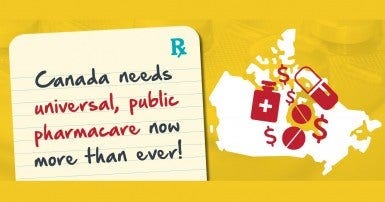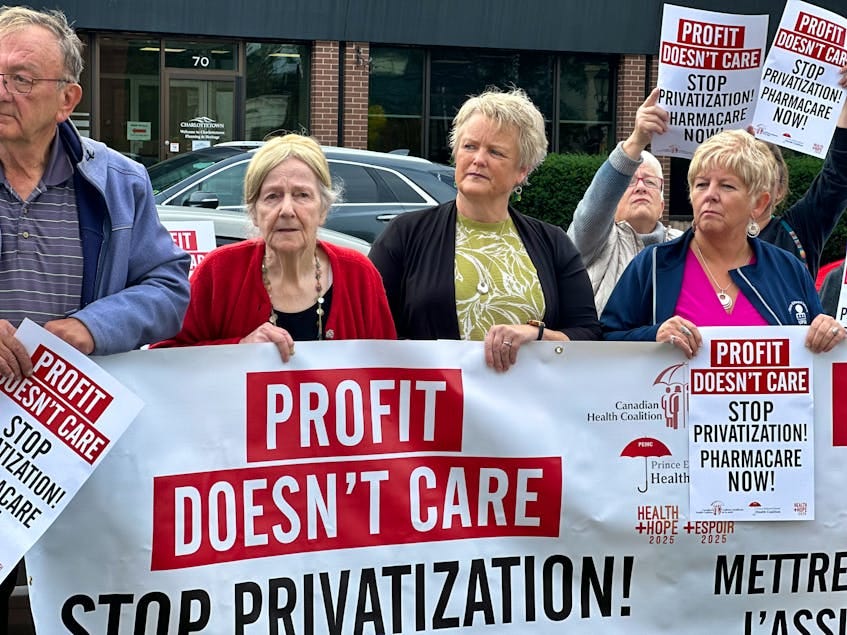Editorial - Against all odds, the first step has been taken towards Canada getting universal pharmacare
But the pharmacare step is very fragile and has many powerful enemies. There will be a war against it by corporate actors and capitalist politicians to impede any further progress.
Just a year ago, it seemed almost certain that the Liberals would cave to corporate pressure and abandon the promise of universal pharmacare, despite its immense popularity.
But this week, the tide seems finally, to have turned in favour of working people— with the introduction of a pharmacare bill that defies decades of industry pushback.
Back in 2023, stunning reports had revealed the health minister was colluding with Big Pharma to halt reforms that could have saved Canadians billions in drug costs. Then, a string of high-profile resignations at the drug price regulator underlined the excessive industry influence over Health Canada’s decisions.
Pharmacare’s corporate adversaries, the pharmaceutical and insurance industries, seemed to have the upper hand. They enjoyed open-door access to the halls of government. They ran alarmist campaigns about the dangers of a universal single-payer program, warning that it would be “unrealistic,” a “disaster” for the country, and make Canadians “lose access to medicines they use.” And they attempted to poison the public debate on pharmacare with misleading polls, lies, and stunts.
For years, these powerful industries marshalled enormous resources to derail progress on a national pharmacare plan, pressuring the government to reject the principle of universality, keep our current mixed public-private system in place, and limit drug coverage to the uninsured.
Now, against incredible odds, Liberal-NDP negotiations have produced legislation that flies in the face of years of furious lobbying by industry — one that paves the way for a universal, public, single-payer pharmacare system.
This is no small feat. It was thanks to tireless grassroots organizing and pressure from patients, advocates, and health-care workers, and the Canadian Labour Congress— in the context of a minority government propped up by the NDP — that the Liberals were finally forced to stand up, at least temporarily, to corporate power.
The cost to the workers was the NDP promise to support funding the US war against Russia. Chrystia Freeland, the Victoria Nuland of Canada, vigorously supports strong Ukrainian nationalist and fascist forces and their war of extermination against Russians inside Ukraine. The Zelensky government has all but eliminated civil and democratic rights, worker rights and even democratic elections in Ukraine. Most unions are banned as is the right to strike. Canada has poured billions into Ukraine to fight the US proxy war with Ukrainian lives.
In addition, the NDP has supported budget funding for Trudeau’s supply of arms, troops and money to the outrageous genocidal crimes of Zionist Israel against the Palestinians. The NDP has supported budgets with no solutions for affordable housing, continuing tax breaks and subsidies for fossil fuel, armed provocations against China and much more.

So where does pharmacare go from here? Trudeau must appoint a committee of experts within 30 days after the Governor General proclaims the Act. That can take as long as Trudeau wants. This committee must develop a list, within a year, of drugs and related products be included in the plan…the “formulary”. Then bargains must be struck with drug companies on prices. Deals must be struck with provinces. Alberta has already opted out and Quebec already has a universal pharmacare plan. All of this could be very quick. Nationalize the drug companies instead of bargaining with them. Set out the basic principles with which Provinces must comply to qualify for federal funding as was done in 1963 when Medicare was introduced. For example, payments will be from dollar one, with no copay, and coverage should include any safe, effective drug.
Finally, we must fight strong political opposition. Drug companies should be nationalized which would eliminate them as opponents. Private Insurance companies will oppose public, single pay pharmacare. These companies should also be nationalized.
Trudeau is not committed to Medicare and Pollievre is opposed. For Trudeau it is a ploy to keep NDP support for his reactionary budgets and to win the election next year. The Act is set up so that nothing actually happens until after the election. If Trudeau wins a majority, that might be the end we hear of Medicare. If Pollievre wins, that will definitely be the end we hear of Medicare.
The NDP, the unions and supporters of strong medical services in Canada must be prepared to fight hard to bring pharmacare to fruition



